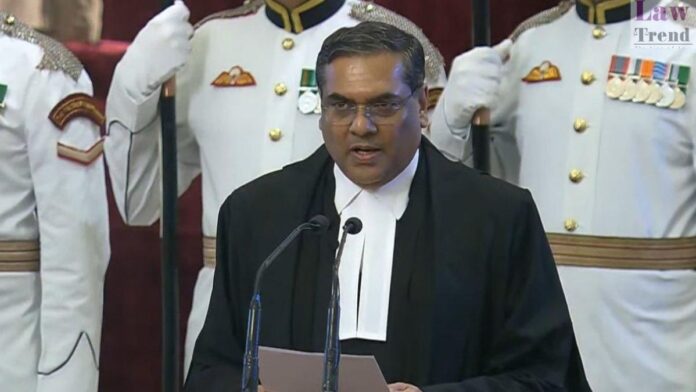In a landmark move, Chief Justice of India Sanjiv Khanna highlighted the significance of judicial cooperation during the signing of a Memorandum of Understanding (MoU) with the Supreme Court of Nepal on Monday. This MoU represents not just a formal agreement but the strengthening of a historic bond through shared collaboration, mutual respect, and a unified purpose.
“India and Nepal share more than just borders; our bond is woven through history and civilizational values, encompassing everything from the sacred Himalayas to the spiritual teachings of Gautam Buddha,” remarked Chief Justice Khanna at the event. He emphasized that these ties are deeply embedded not only in traditions but also in the democratic institutions that both countries cherish.
Chief Justice Khanna underscored the judiciary’s vital role in preserving the constitution, enforcing the rule of law, and ensuring justice for all. He pointed out the enhanced significance of the evolving cooperation between the judicial institutions of India and Nepal.
He further noted the ongoing legal dialogues between the two nations, where many esteemed members of the Nepali judiciary have studied in Indian institutions, returning with a rich understanding of the shared legal traditions rooted in constitutionalism and the rule of law.
Highlighting the judicial interactions, CJI Khanna referenced the case of Navtej Singh Johar v Union of India, where the Indian Supreme Court cited a Nepalese judgment during its historic decision to decriminalize Section 377 of the Indian Penal Code. “This is an example of how legal principles from one country can inspire broader jurisprudential changes in another,” he stated.
The Chief Justice celebrated the integration of Indian constitutional doctrines, like the Basic Structure doctrine, into Nepal’s jurisprudence, which demonstrates the deep intellectual kinship and mutual enrichment between the two nations’ legal frameworks.
“These exchanges aren’t just coincidental but a natural outcome of our shared intellectual legacy, fostering a broader understanding of legal principles in a South Asian context,” CJI Khanna explained. He believes these interactions help constitutional democracies to evolve, adapt, and remain open to external influences that resonate with their historical and social realities.
The MoU aims to institutionalize the traditional kinship through formal judicial exchanges, joint research, training programs, seminars, and visits. “These are vital for not only enhancing understanding and cooperation between our legal systems but also for tackling common challenges like access to justice, judicial delays, and ensuring the protection of constitutional rights in our fast-evolving societies,” he added.
Chief Justice Khanna envisions a future where these engagements are not merely academic or ceremonial but fundamental to building a robust regional judicial integrity and deepening the commitment to justice and rule of law across both nations.




